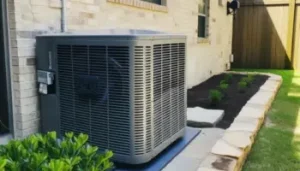As the world continues to prioritize sustainability and environmental consciousness, advancements in eco-friendly technologies have revolutionized the HVAC industry. Green HVAC systems, such as geothermal heating and cooling and solar-powered HVAC systems, are gaining popularity due to their energy efficiency and reduced environmental impact. In this blog post, we will delve into the latest advancements in eco-friendly HVAC technologies and explore their benefits for both the environment and homeowners. We can create a more sustainable future by embracing these green technologies while enjoying efficient and cost-effective cooling and heating solutions.
Geothermal Heating and Cooling Systems:
Geothermal heating and cooling systems harness the earth’s natural heat for efficient and environmentally friendly temperature control. These systems utilize a series of underground pipes, known as a ground loop, to exchange heat with the ground. During the winter, the system extracts heat from the earth and transfers it indoors, providing warmth. The process is reversed in the summer, as the system removes heat from the indoor air and transfers it back into the ground.
The benefits of geothermal systems are manifold. Firstly, they significantly reduce energy consumption by utilizing the earth’s stable and renewable thermal energy. Geothermal systems can achieve energy efficiencies of up to 400%, meaning that for every unit of electricity used to operate the system, up to four units of heating or cooling are produced. This translates into lower utility bills for homeowners.
Moreover, geothermal systems have a minimal environmental impact. They do not rely on fossil fuels and produce no direct emissions, reducing greenhouse gas emissions and air pollution. Additionally, geothermal systems operate quietly and have a longer lifespan than traditional HVAC systems, resulting in lower maintenance and replacement costs over time.
Solar-Powered HVAC Systems:
Solar-powered HVAC systems utilize the sun’s energy to provide cooling and heating for residential and commercial buildings. These systems incorporate solar panels that capture sunlight and convert it into electricity, which powers the HVAC system’s operation. The electricity generated can be used directly or stored in batteries for later use.
The primary advantage of solar-powered HVAC systems is their renewable and sustainable nature. Solar energy is abundant and inexhaustible, making it an ideal choice for eco-conscious homeowners. By relying on solar power, these systems reduce reliance on traditional energy sources, contributing to a greener and cleaner environment.
Solar-powered HVAC systems offer considerable cost savings over the long term. Once the initial investment in solar panels is made, the energy generated is free, reducing or even eliminating monthly electricity bills. Additionally, some regions and governments provide incentives such as tax credits or rebates for installing solar systems, further enhancing the financial benefits.
Furthermore, solar-powered HVAC systems are highly reliable and resilient. They can operate off-grid, making them suitable for remote areas or during power outages. With battery storage, excess solar energy can be stored and used during cloudy days or at night, ensuring continuous operation.
Additional Green HVAC Technologies:
In addition to geothermal and solar-powered systems, several other green HVAC technologies are worth considering. These include:
a) High-efficiency HVAC units: Modern HVAC units are designed to be highly energy-efficient, with advanced features such as variable-speed compressors and smart thermostats. These technologies optimize energy consumption and provide greater control over temperature settings.
b) Heat recovery ventilation (HRV) systems: HRV systems capture and transfer heat from exhausted stale air to fresh incoming air. This process reduces the need for additional heating or cooling, improving energy efficiency and indoor air quality.
c) Smart HVAC controls: Smart thermostats and advanced control systems allow homeowners to monitor and adjust their HVAC systems remotely. By optimizing temperature settings and schedules, energy waste can be minimized.
Conclusion:
The future of HVAC lies in green technologies prioritizing energy efficiency and environmental sustainability. Geothermal heating and cooling systems, solar-powered HVAC systems, and other eco-friendly technologies offer numerous advantages, including reduced energy consumption, lower utility bills, minimal environmental impact, and increased reliability. By embracing these advancements, homeowners can contribute to a greener future while enjoying the benefits of efficient and cost-effective cooling and heating solutions. Contact Diamond Heating and Cooling Services to explore these green technologies and positively impact the environment while enhancing your comfort and energy savings.



